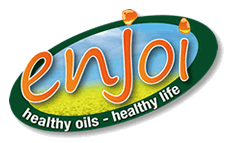Bar Talk Magazine: Best of Show Interview - Enjoi Ltd in Restaurant & Bar

Reminder: This year Enjoi also participates in the Restaurant & Bar 2016 (6-8/9/2016 in HKCEC Hall 5 EFG). Our booth is located at GB28. Come and take a look!
Below is the interview of Enjoi Ltd. by Bar Talk Magazine last year.


FOOD RULES
Steven Horton spoke to Bar Talk on the new proposed legislation for edible oils in Hong Kong - the prevention of oil that is no longer safe to fry with and must be stopped from re-entering the food chain by monitoring its collection, reuse and final destination.
The Food and Drug Administration (FDA) in USA on 16th June 2015 announced that trans fat (partially hydrogenated oils and oils that are unstable in their work place) will be removed from the U.S. food supply.
On the 20th July 2015, the Hong Kong Government proposed to regulate the safety of edible fats and oils by the way of legislation in the wake of the scandal of tainted “gutter oil”. Now the HKSAR Government Food & Safety Centre is asking: What is a safe oil? How to identify that an oil is still safe & healthy in the work place?
These are big issues for the food industries, and consumers too are seeking stronger food safety conditions and querying the use of cooking and frying oils – since they are in 20% of most Western menus and 60% of most Asian menus. Diners are seeking restaurants that clearly state they are using Monounsaturated Omega 9 rich oils - good oil that will not lower their immunity levels to cause obesity, heart & blood disorders, diabetes or cancer.
In the HKSAR, proposed regulatory measures include the following major elements:
Statutory safety standards for edible oils to meet Codex standards with further refinements for arsenic, lead, Free Fatty Acids, Benzopyrenes, Peroxide value and Trans Fat Values. Currently missing from the legislation are standards for acrylamide & total polar compound content in edible oils and the only identifiers for oxidation and counterfeit olive oils (PPP & DAG).
Improving source management including establishing a source management and traceability system.
Regulating the productions systems (Factory License).
Strengthening inspections & testing through (1) regulatory surveillance, (2) self-inspection and (3) testing by the Trade.
Enhancing food traceability (transfer of certificates through logistics & user chain). All of the tests & certifications that the oil is required to pass in the USA, Canada, Australia, China, Taiwan, Thailand, Malaysia & now Hong Kong must accompany every import and export. In the event the oil is opened, refilled into another container or used in any way a new set of documents must be created.
At first, it will be hard for a government laboratory or licensed laboratory to do all the tests and issue reliable certificates of Chemistry Analysis based on Codex accuracy.
Hong Kong ultimately will no longer tolerate re-packaging, re-refining and unregistered brands and or private label oils that do not have traceability stated from farm to fork. Otherwise they are going to be classified as not intended for human consumption.
The HKSAR Government will require importers to certify each batch of edible fats and oils imported into Hong Kong are fit for human consumption. Meaning the oils must come with a certification for origin (where was the oil made), certificate of sanitation (the oils were made under international standards), Health Certificate (that the oil is safe, healthy to consume according to the label), each container must have a batch number, harvest/production date, packaging date and a detailed chemical analysis for that specific batch of oil available for the user, consumer on a website easily accessible.
On each and every label (not the health certificate), it must clearly state that the oil must be stored under 25°C, free of light, air & moisture as these three elements cause the oils health to break down.
To date, missing from the proposed legislation but intimated between the lines and at public forums - all oils will need to be tested in the place of work to ensure they have not reached a stage that is unsafe or un t for human consumption.

How can a user know whether the oil they purchased matches the certifications?
All oils change their original chemical composition as stated on the labels as the oils are exposed to air, water, light & temperatures. When it is oxidized, its colour will turn black and smell like a spoiled banana. Some oils would decompose faster, some slower.
Physical tests to measure the decomposition
Smell: natural aroma, burnt food, burnt oil, hints of pork or fish)
Colour: goes from light yellow to very light brown, to red brown to dark brown and shades of black.
Testing with a ladle is safest & most accurate way to see the real colour of an oil.
Taste of product: freshness/moisture/dryness
Temperature it starts to burn
Evaporation: the fumes can be seen with a torch
Absorption: high absorption occurs when a lot of water in the food is exchanged for oil.
Thickness of the oil: The thicker the oil the older and more health issues occur with the oil.
Steven Horton of Enjoi Limited is in Hall 5 Booth GB28












